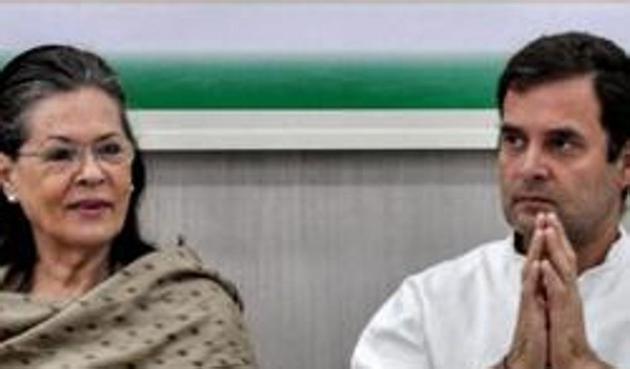The Congress is not meant to die or wither away. It must change |Opinion
Proposing an alternative leadership is not disloyalty. There is an opportunity now
The Indian National Congress has given India six prime ministers — three descended from Pandit Motilal Nehru and three others. All six have left a stamp on the Republic.

It is not a party that is meant to wither away. Like the sentiments in Shelley’s iconic poem The Cloud, it can — and must — change; it cannot die.
When Rahul Gandhi, leaving the presidentship of the party after the 2019 election results, said neither he nor anyone from the Nehru-Gandhi family was going to lead it thereafter, he signalled change. The change that was going to breathe new life into it. But the party didn’t dare to face the change. It did not dare to read the writing on the wall. It reversed time, recoiled progress in standing Rahul Gandhi’s bold idea on its head, and brought Sonia Gandhi, richly deserving a respite, back.
Time is walking the Congress through another reality check today, another chance to self-assess, self-renew, self-redeem. It has to but look at the arc of its six prime ministerships.
Playing on the new prime minister’s first name, Gandhi blessed India’s first prime minister, Jawaharlal Nehru, in January 1948: “Bahut varsh jiyo aur Hind ke Jawahar bane raho…” (Live many a long year and remain India’s jewel). Jawaharlal was not to live all that long ; 75 is not a hoary old age. But he was prime minister for 17 consecutive years from age 58 to 75, a substantial achievement. When that span is seen against the further “plus” of him and his party winning every election held, free and fair, during that period, the accomplishment becomes all the more impressive.
India loved him during that time more than it loved any other contemporary politician. Two younger opponents of his in north India also enjoyed esteem and even adoration — Jayaprakash Narayan (1902-1979) and Rammanohar Lohia (1910-1967), with Sheikh Abdullah being a hero for the people of Kashmir, C N Annadurai (1909-1969) with Tamil Nadu’s discerning population, Phizo with the Naga people. But Nehru was all-India. Truly, Hind’s jewel. Atal Bihari Vajpayee’s moving tribute to the leader on his death — “surya ast ho gaya hai”, the sun has set — has gone into the transactions of political Hindi literature.
Succeeding “Hind ka Jawahar” was no ordinary task. But Lal Bahadur Shastri (1904-1966) startled India by his ability to hold the reins of power with his own distinctive style of leadership — consultative in method and consolidative in effect. His masterly handling of the military challenge posed by Pakistan in 1965 made Shastri an unexpected star. But, alas, one that shot out of the sky as fast as it had entered it.
Shastri’s succession by Indira Gandhi (1917-1984) stood vindicated in the triumphant 1971 India-Pakistan war and Bangladesh’s birth, though the Emergency she unleashed in 1975 spread the darkest of stains in her copybook. An un-Nehruvian cult of personality rose in her years in office, undermining institutions of governance.
Rajiv Gandhi raised India’s profile globally in a technologically-transforming era as only someone as young and venturesome as he could have. And he concluded momentous accords with leaders of regional sub-nationalist movements. Ingenuously trusting untrustworthy party operatives he, not they, paid a heavy price.
For PV Narasimha Rao (1921-2004), history has reserved praise for pulling India out of the foetid listlessness of the licence-permit raj, kickstarting our economic engines of growth. When on selecting Manmohan Singh as his finance minister, Rao was asked if the man he had picked was not “too far to the Left”. He said: “If the finance minister of India is not a Leftist, what else is he to be?”If Rao had been given another term in office, would he and his finance minister have ensured that equity and distributive justice were not sacrificed at the altar of growth? I believe they would have, both knowing the heart of India’s living truth — disabling adversity.
As a citizen, I recall the 10 years of India’s sixth Congress prime minister, Manmohan Singh, for his having made the Right to Information real, if still vulnerable; the Mahatma Gandhi National Rural Employment Guarantee Schemes (MGNREGS) also real, if patchily administered; and for changing India’s stance on the climate crisis by making it part of the solution instead of the negative attitude of “we did not cause it” and getting the National Green Tribunal Act in place. To him also goes the credit for pioneering legislation on two unlit areas — domestic violence and mental health , getting, in these life-nurturing initiatives, crucial support from Congress president Sonia Gandhi.
When, faced with the party’s poor electoral showing, Congress president Rahul Gandhi resigned and said what he did, the nation waited for the party’s next step.
Some leaders in the party should, at that point, have offered themselves for the role. A healthy contest should have ensued with the elected victor becoming the next Congress president. With Bhopal and Jaipur, now, another opportunity knocks at the party’s door. An opportunity to see — and show — that change is the only guarantor of continuity. Democratic opposition to the government is not sedition; proposing an alternative leadership to the present one in the party is not disloyalty.
“Hind ka Jawahar” is not a patented title, but a golden trophy to be won and passed on by one deserving hand to another.




